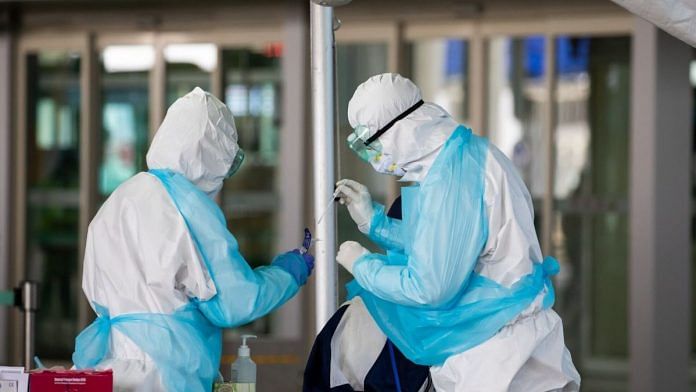Seoul: The “come forward, get tested” strategy that’s helped Korea contain the coronavirus has run into an obstacle: the country’s longstanding homophobia.
Following an outbreak linked to gay clubs in central Seoul, health officials are trying to track more than 5,500 people who visited the bars between April 24 and May 6. But more than half remain out of reach, while the infections tied to the bars continue to rise. Monday morning, health officials reported 86 cases so far, with 35 outside the city and as far south as Busan and Jeju Island.
The spread poses the biggest threat yet to the Asian nation’s success in curbing its epidemic through rapid and widespread testing. Instead of imposing strict restrictions on peoples’ movement and business activity, South Korea has relied on its testing program, which allowed officials to identify and isolate those infected before they can spread the pathogen to others.
The strategy’s relied on people’s willingness to get tested and volunteer personal information, and for months, it’s worked. From late April until the most recent outbreak, Seoul saw the number of new daily cases drop to one or two, and sometimes zero.
The latest flare-up has emerged among a crowd of people who may not want to be identified. Gay people have few legal protections in Korea. According to a 2017 Gallup poll, 58% of Koreans are against same-sex marriage, including the President, who made his opposition a part of his campaign.
After the Korean government revealed in its push alerts the names of the bars that the coronavirus positive patient had visited, anti-gay comments accumulated on the Facebook page of Seoul-based King Club.
“There’s a considerable level of discrimination and hostility against homosexuality,” said Kwak Hye-weon, a professor at Daekyeung University and co-author of a 2019 study on the effects of homophobia on the nation’s health system. “That makes potential victims of the infection more likely to stay in the dark rather than voluntarily come forward for testing.”
Kwak also noted that club-goers might pay in cash in order to stay anonymous, making it hard to trace them through financial transactions.
The country’s drive-through testing sites may help. In late February, when a cluster of cases broke out in Daegu City tied to a religious sect, health officials encouraged people worried about stigma to get tested that way, said Ki Moran, an epidemiologist at the National Cancer Center. “I think they should do the same this time to avoid the worst and help potential patients get tested out of public sight,” she said.
Health officials have promised they won’t ask for or reveal too much personal information if people come forward. Victims “don’t need to specify the club they visited,” said Yoon Tae-ho, director-general for public health policy at the Ministry of Health and Welfare. “Just tell us you were in the same district and want to be tested, for free.”
“A day’s hesitation would cost the entire community an entire month before returning to normal daily life,” he added. – Bloomberg
Also read: How to reopen a country in lockdown? US looks to South Korea, Vienna for ideas



